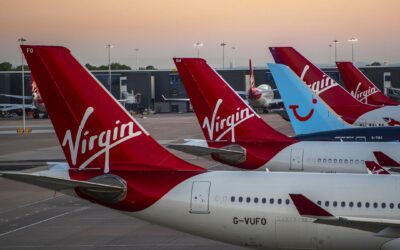Bristol-Myers Squibb is acquiring the Californian drugmaker MyoKardia for $13.1bn to expand its portfolio of cardiovascular drugs.
The New York-based pharmaceutical company said it had agreed to pay $225 a share, a more than 60 per cent premium on MyoKardia’s closing price on Friday.
Giovanni Caforio, Bristol-Myers Squibb’s chief executive, said MyoKardia’s drug mavacamten was “a promising medicine with the potential to address a significant unmet medical need in patients with cardiovascular disease”.
Pharmaceutical companies have focused much of their dealmaking on oncology and rare diseases, where drugs can be approved quickly and fetch high prices.
But the MyoKardia acquisition highlights the enduring interest in new heart medicines. It follows Novartis’s purchase of The Medicines Company, another cardiovascular-focused deal, for $9.7bn last year.
MyoKardia expects to apply for approval for mavacamten in the first quarter of next year. The drug treats obstructive hypertrophic cardiomyopathy, a serious condition where the heart muscle gets too thick, which is estimated to affect one in every 500 people but often goes undiagnosed.
The therapy performed well in its phase-3 trials, reducing the obstruction of blood flow from the heart and showing meaningful improvements in symptoms.
Tassos Gianakakos, MyoKardia’s chief executive, said the company had “an unparalleled pipeline of targeted therapeutics designed to change the course of disease and return the heart to normal function”.
Bristol-Myers Squibb already has a significant presence in cardiovascular drugs, most notably with Eliquis, used to prevent blood clots.
The acquisition is the company’s first major deal since it closed the $90bn acquisition of biotech Celgene last year, which was one of the biggest-ever takeovers in the industry.
Shares in eight-year old MyoKardia jumped 59 per cent to $222 in pre-market trading in New York on Monday, while Bristol-Myers Squibb stock declined 1.1 per cent.
“The acquisition of MyoKardia further strengthens our portfolio, pipeline and scientific capabilities, and is expected to add a meaningful medium- and long-term growth driver,” Mr Caforio said.
MyoKardia also has other earlier-stage drugs in its pipeline, including two in clinical trials.
Founded in 2012, MyoKardia was started by Third Rock Ventures, a healthcare-focused venture capital firm, and scientists from the University of Colorado, Harvard and Stanford.
Bristol-Myers Squibb said the acquisition would be “minimally dilutive” to non-GAAP earnings per share in 2021 and 2022, and start adding to earnings in 2023. It would finance the transaction using cash and debt, it said.
The deal was approved unanimously by both companies’ boards of directors and is expected to close in the fourth quarter.
Source: Financial Times
Can’t stop reading? Read more
Clessidra enters Italian bakery sector with 70% Laurieri acquisition
Clessidra enters Italian bakery sector with 70% Laurieri acquisition Clessidra Private Equity has...
Apollo steps in with $745m financing package as Virgin Atlantic ramps up fleet investment
Apollo steps in with $745m financing package as Virgin Atlantic ramps up fleet investment...
Thoma Bravo secures shareholder approval for $12.3bn Dayforce take-private
Thoma Bravo secures shareholder approval for $12.3bn Dayforce take-private Thoma Bravo has...




